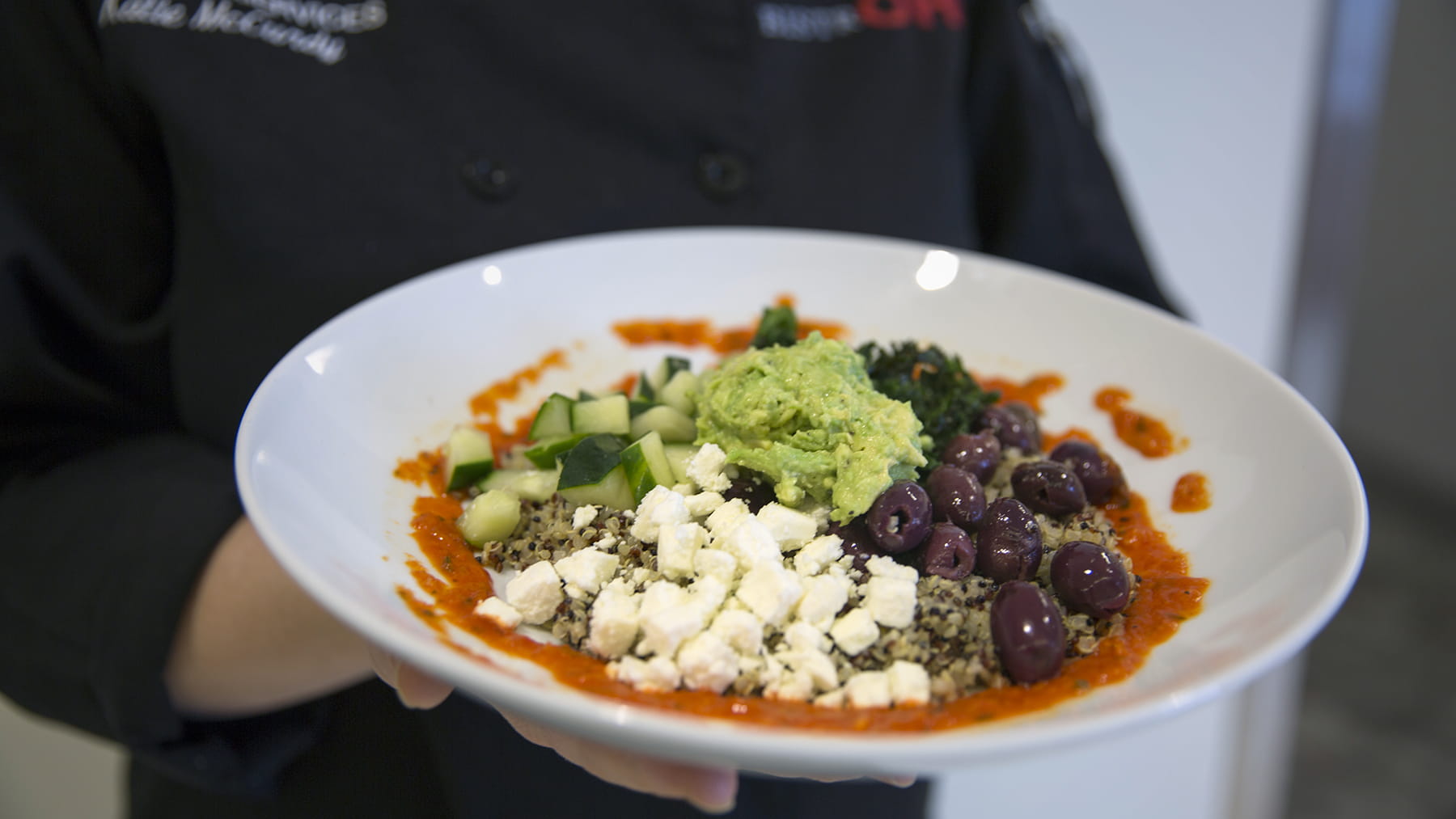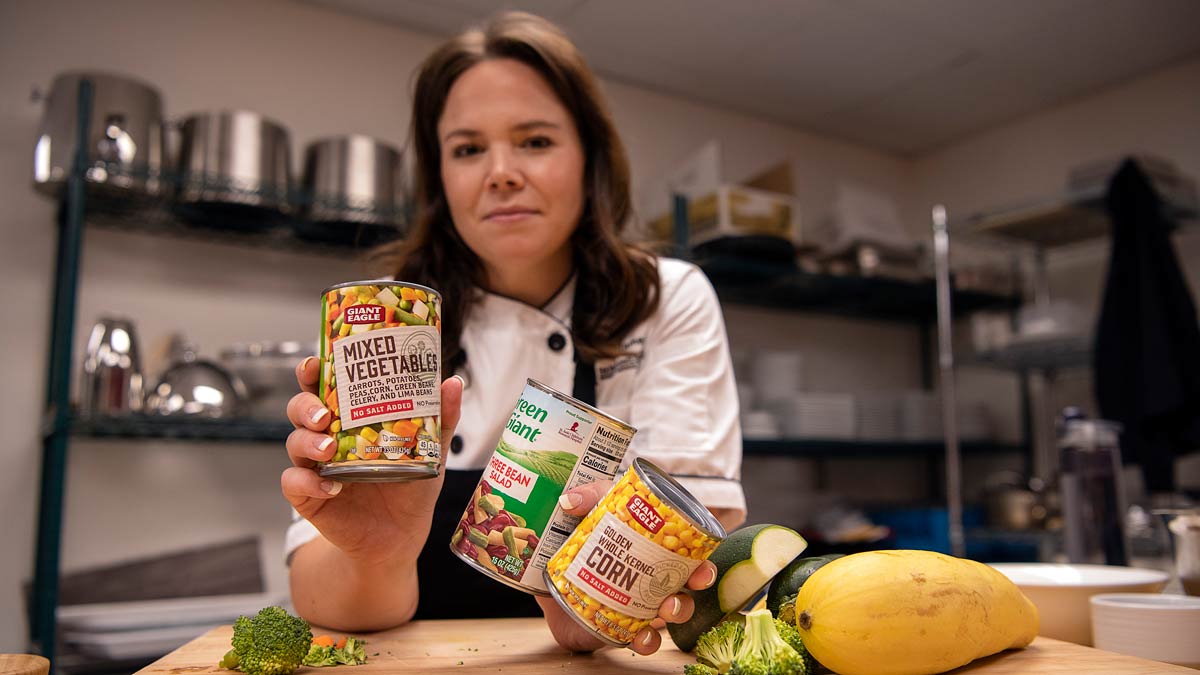How to eat to promote healing

Nutrition plays a major role in healing, whether it’s after surgery or a wound. Eating right can decrease the likelihood of complications.
“In just the past five to 10 years, we’ve developed a much better understanding of how to optimize patients for healing,” says David C. Evans, MD, FACS, a surgeon at The Ohio State University Wexner Medical Center who specializes in trauma and surgical critical care.
We’ve also learned that there’s much more to boosting healing than just loading on more calories.
“In the past, we would look for weight loss as the primary indicator of malnutrition. Now, we understand that it’s much more complicated.”
After surgery or a wound, it’s especially important to balance your intake of certain nutrients. If you know well ahead of time that you’ll be having surgery, you can get a head start on building nutrition and can even increase your strength with exercise, such as walking and light resistance training.
The nutrients you’ll need most
Protein is most important for surgery and wound healing, says Sheela Thomas, MS, RD, CNSC, an Ohio State Wexner Medical Center dietitian who specializes in nutrition for patients with severe burns.
“Protein breaks down into amino acids, which are the basic building blocks our body can use to rebuild tissue,” she says. “Having generous servings of protein at all or most meals makes a difference.”
Poultry, beef, pork, fish, milk, cheese, Greek yogurt or eggs are some of the best sources of protein, but if you’re a strict vegan or vegetarian, you can find it in other sources, such as soy foods, nuts/nut butter and beans.
Because protein is so important, some situations may call for protein you can’t get from food.
“In patients with major wounds, it is impossible to eat enough protein by mouth to achieve the balance to rebuild and recover well,” she says. “For these patients, we often provide additional nutrition either through a feeding tube or intravenously, if appropriate.”
Three other major nutrients to consider are vitamin A, vitamin C and zinc.
Vitamin A is found as beta-carotene, in vegetables that are bright orange or dark green (pumpkin, sweet potato, kale, spinach, collard greens, etc.). It’s also found in eggs and liver.
Thomas notes that if you’re taking steroids for any other medical condition, you should pay even more attention to vitamin A, since steroids can delay wound healing.
Vitamin C, a powerful antioxidant and booster of collagen production, can be found in bell peppers, broccoli, tomatoes, berries and citrus fruits.
Zinc, used in numerous bodily processes, is especially important for immune system function. You can find it in meat, whole grains, eggs and fortified products like cereals and some breads.
Other nutrients to include every day: vitamin D and selenium.
Vitamin D is most easily found in a supplement – otherwise, it comes mainly from sun exposure. It helps the immune system, bone health and several other bodily functions.
Selenium, a strong antioxidant, is in poultry and beef, but it’s most easily found in Brazil nuts and mushrooms. Just two Brazil nuts a day will meet your daily selenium requirement.
If you’re overwhelmed with the idea of finding all of these nutrients every day, just follow these guidelines:
- Eat small, frequent meals (five to six or more times a day) that include a protein source and fruit or vegetable at each meal to help meet the increased nutritional needs.
- A serving of lean meat is about the size of your palm of a hand. Try to have this amount for at least two meals each day. An egg works well for breakfast or a snack as you prepare for surgery or until wounds are healed after surgery.
- Take a multivitamin with minerals to be sure you are meeting your mineral and vitamin needs.
Diets that can help you incorporate these elements include the DASH diet and the Mediterranean diet.
Helpful snack options between those meals:
- An ounce of cheese (the size of a pair of dice)
- Homemade milkshakes/smoothies with fruits, peanut butter or Greek yogurt
How we know nutrition is important for healing
Research shows a clear link between after-surgery complications and low stores of protein, carbohydrates, fats, vitamins and minerals. These complications include pressure ulcers, surgical site infections, post-operative infections and urinary tract infections.
Medical experts have also learned that the density and quality of muscle matters, Evans says.
“We examined patients at Ohio State who underwent enterocutaneous fistula repair (a complicated, high-risk operation),” he says. “We found that we could look at the torso muscles to predict which patients were at risk of complications.”
The quality of muscle mattered more than the size. Patients who had more fat or water in their muscles were more likely to have problems after surgery. Because we know that muscle plays a major role in protein storage and immunity, this tells us more about how important protein is to the healing process.
Research also shows that healing requires plenty of collagen production, which needs amino acids, vitamin C, zinc and other nutrients listed.
Eating healthy meals that focus on these nutrients is good for you even if you’re not in healing mode. Just talk with your doctor before adding supplements, medications or herbs to your diet.
Show me a cheat sheet of meal and snack suggestions for healing




